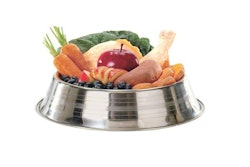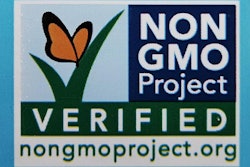
News that Tyson Pet Products, the pet treat division of Tyson Foods, has been targeted with a class action lawsuit over “Made in the USA” label claims on its treats is not really a surprise. Nor is the fact that the lead plaintiff in the case also filed a class action suit against J.M. Smucker/Big Heart Pet Brands for the same reason.
No, what’s shocking, dismaying and concerning is that lawsuits such as this have become so commonplace—not only in pet food but in just about all consumer product categories—that they barely cause a reaction.
“Voting with your wallet” is an old American expression, meaning that if a consumer didn’t like a company’s practices or products, he or she would stop buying those products or refuse to buy them in the first place. With Internet connectivity becoming so widespread and social media so popular, disgruntled consumers could take an extra step by sharing their negative perceptions and experiences with many more consumers. And many people do just that.
But more and more, consumers aren’t at all reluctant to show their displeasure with a product or company in a way that used to be reserved for the most egregious cases of outright harm or injustice: filing a lawsuit. Especially, in the US, that American specialty: a class action suit. Though pet food companies are certainly not being singled out for litigation, this form of consumer dissatisfaction is definitely becoming more common in our industry.
In my view, US consumers are taking this tack more often because, well, they can. In some jurisdictions—particularly in California—it’s extremely easy for anyone to pursue litigation over just about anything. And of course, there’s an entire army of attorneys eager to aid and abet, looking for a big payout from huge, deep-pocketed targets like Tyson. (Or Nestlé Purina PetCare, another frequent target, with Mars Petcare sometimes getting hit, too.)
Pet food consultants have told me that they’re receiving more calls from companies being threatened with, or named as defendants in, class action lawsuits. Often, this is happening over label claims, not just the “Made in the USA” claims in the Tyson and Big Heart suits but also ones around natural claims. “Class action litigation is occurring on a regular basis in the human food industry as well as the pet food industry surrounding natural claims,” wrote Melissa Brookshire, DVM, founder of North River Enterprises.
Some people believe the increasing pet food litigation stems from a lack of consumer trust in the industry, and I agree. This lack of trust, in turn, stems from the 2007 melamine-related pet food recalls, when many consumers found out for the first time how some pet food was made and where some ingredients came from. And, in my opinion, with a few exceptions, the industry missed the perfect opportunity then to commit to transparency in those and other areas, and win back most pet owners’ trust.
Class action lawsuits also resulted from the 2007 recalls, and in those cases, I can completely understand why pet owners took that route. Most plaintiffs in that litigation had lost their beloved pets to illnesses resulting from the melamine in the implicated pet foods, or had spent large sums of money (and endured considerable anguish) to treat their pets’ illnesses. Again, in my opinion, most of those lawsuits were completely justified—egregious cases involving outright harm, injustice or financial hardship.
What blows my mind is that with this current crop of class action suits, it’s difficult to see any of that—harm, injustice or financial adversity—incurred by the plaintiffs. They’re just really unhappy with these pet food products and companies, and rather than voting with their wallets, and/or bashing the companies on social media, they file a lawsuit. Because they can. (Nestlé’s parent company is even being threatened with a lawsuit by a woman hugely disappointed that her KitKat candy bars were missing the wafer layers.)
As Brookshire advises, that means it’s prudent for pet food companies to be as careful as possible with their label claims. The US Food and Drug Administration is starting to look more closely at natural claims for human foods; and while nothing is likely to happen for a while, that could help clarify things for pet food claims, too. The same goes for movement in the non-GMO category. But until then, increasing litigation is, sadly, likely to become simply a function of doing business for some companies.

















